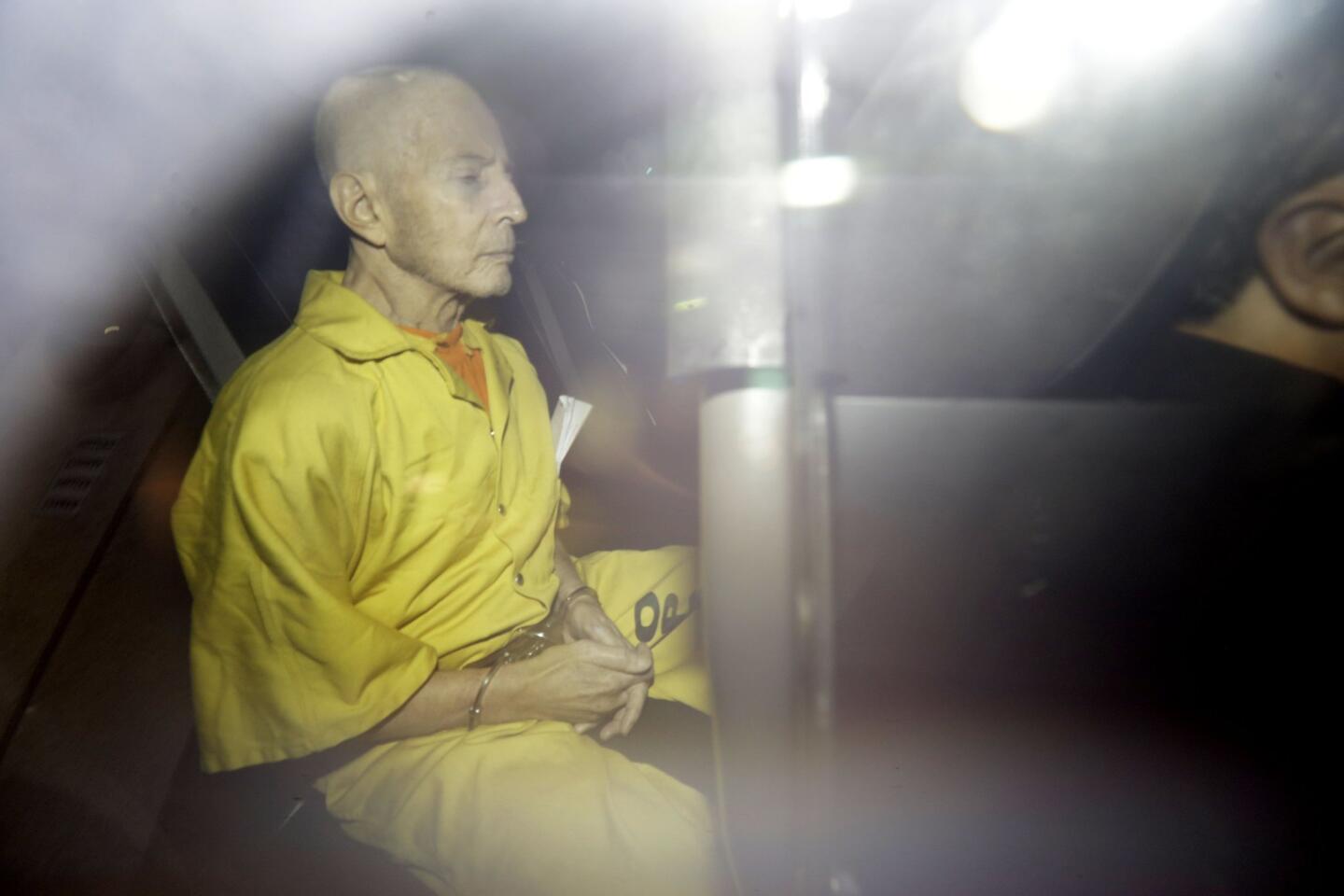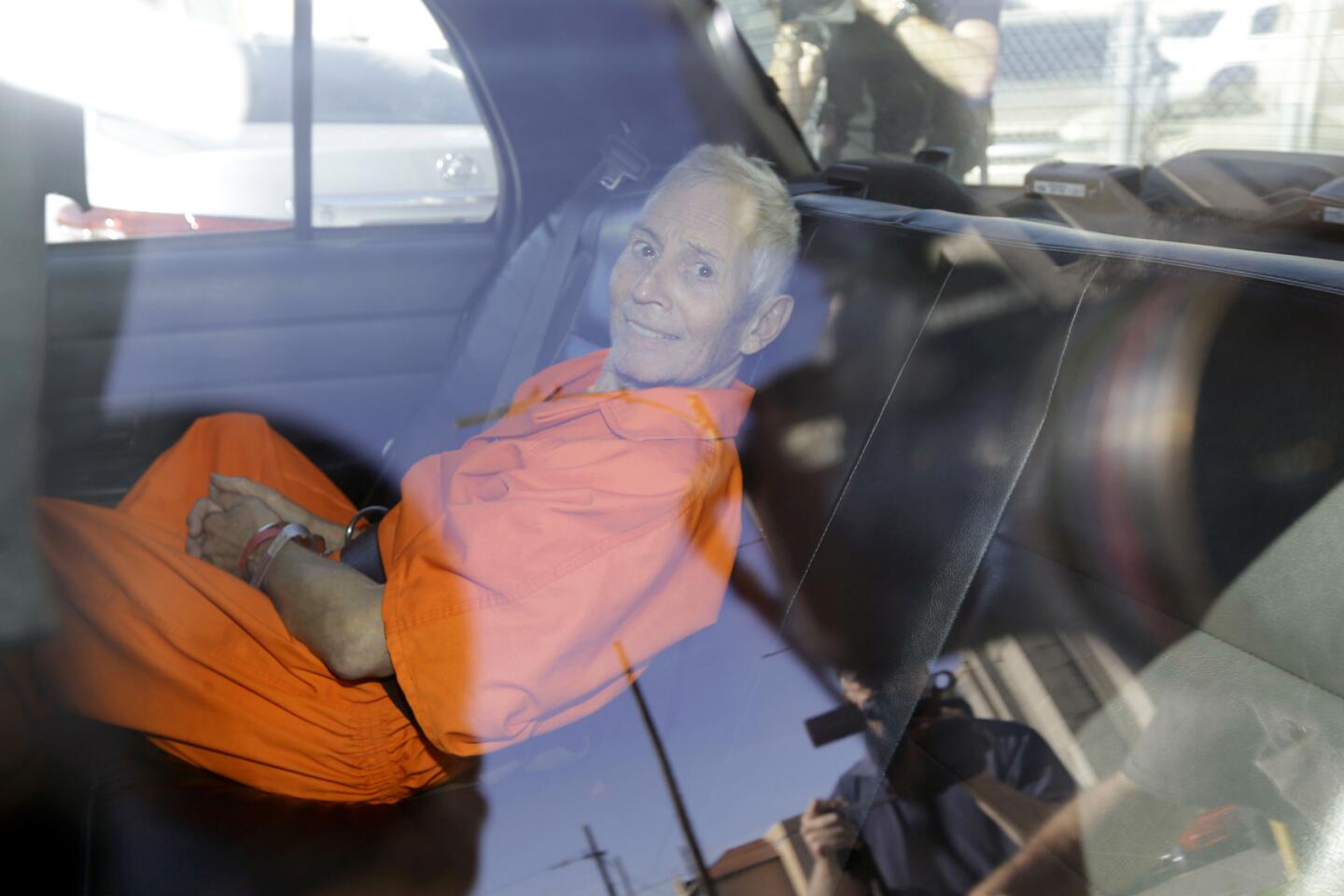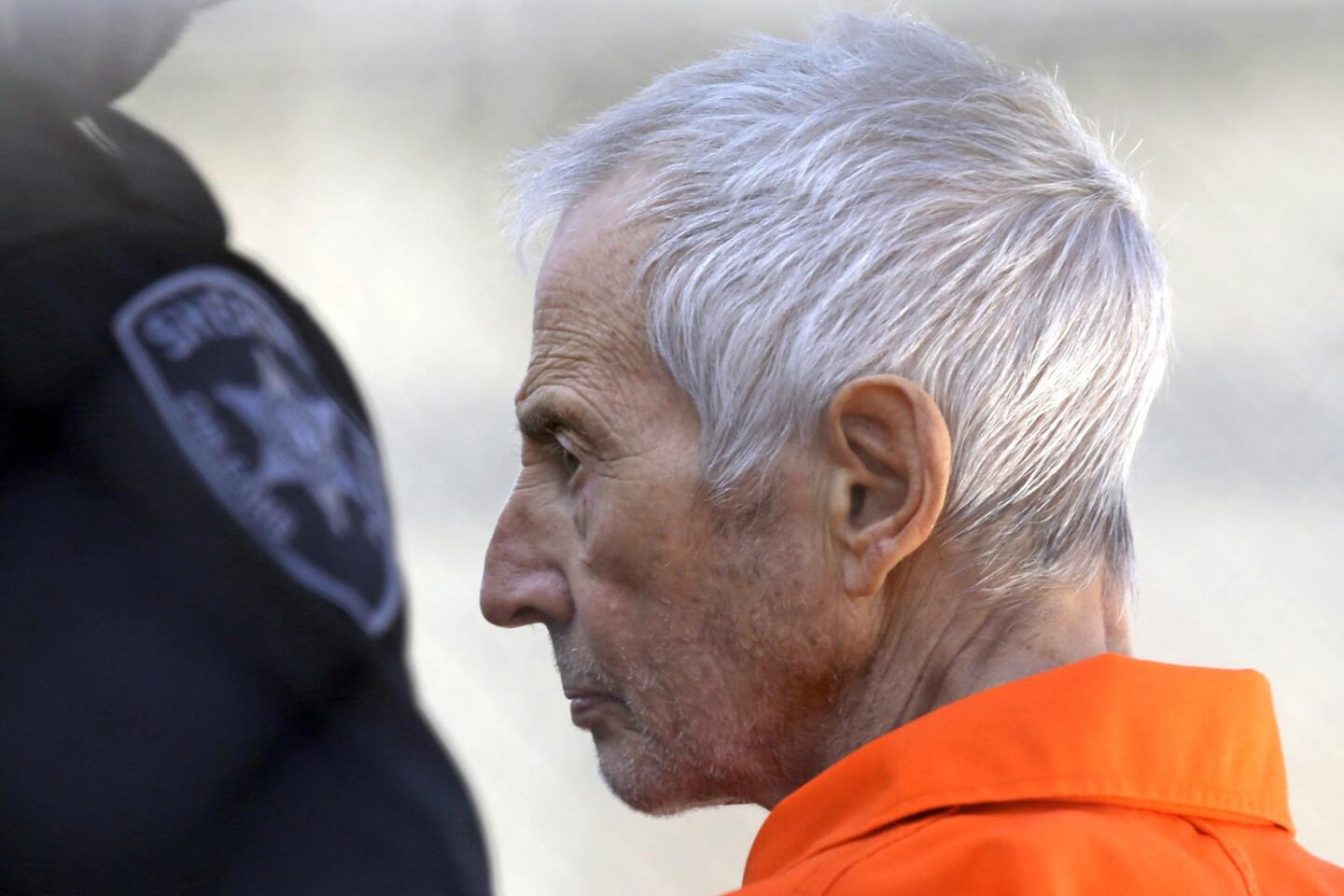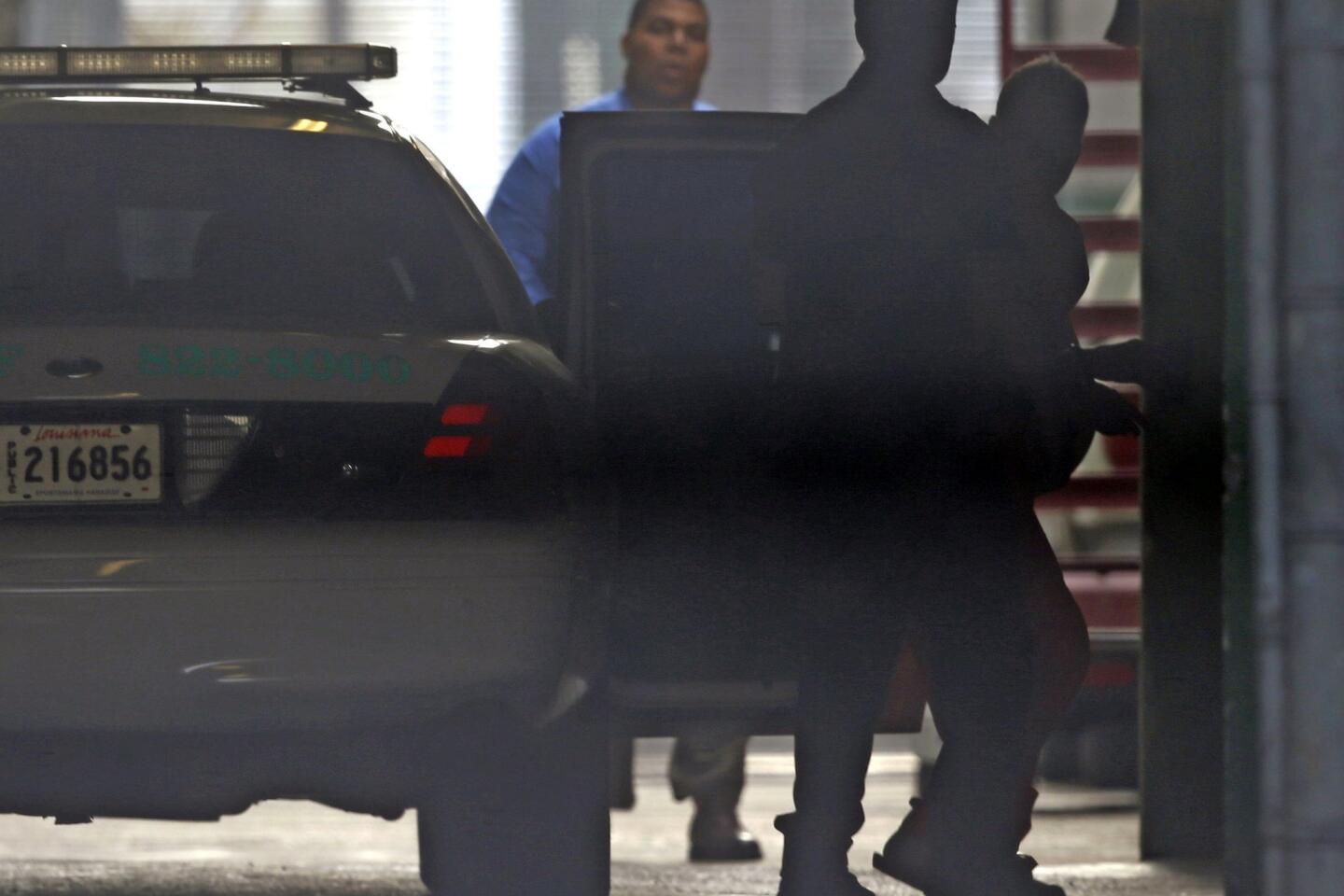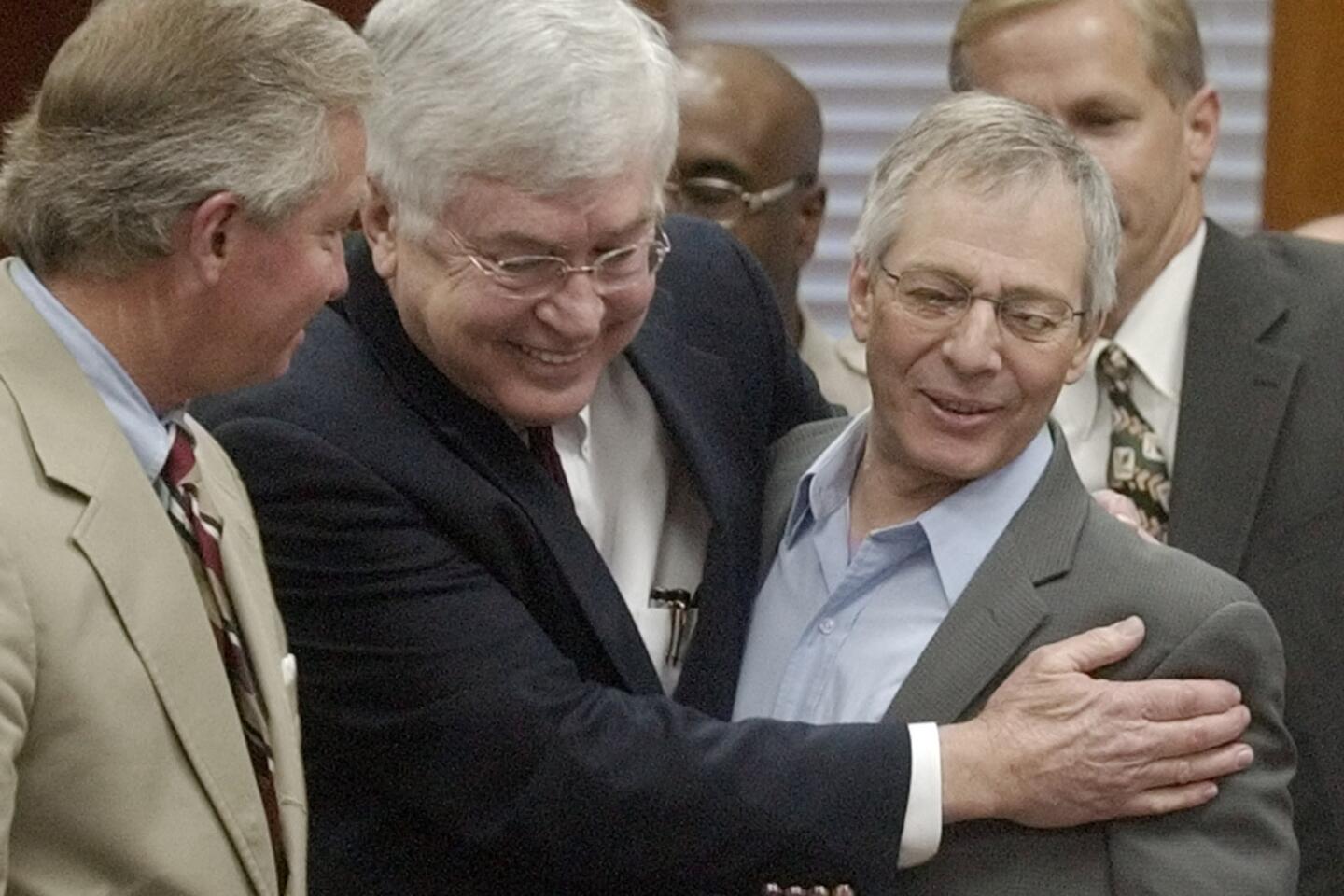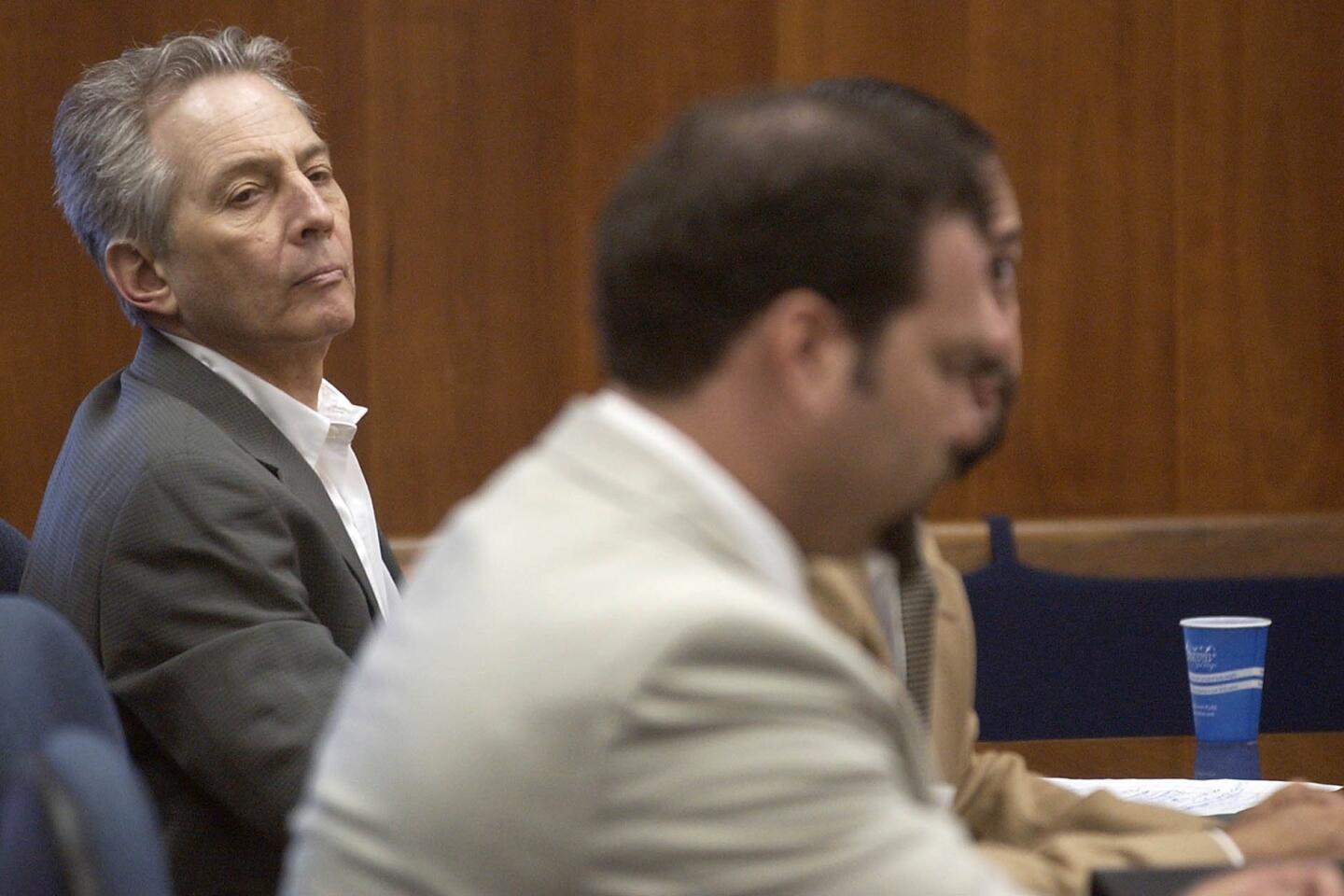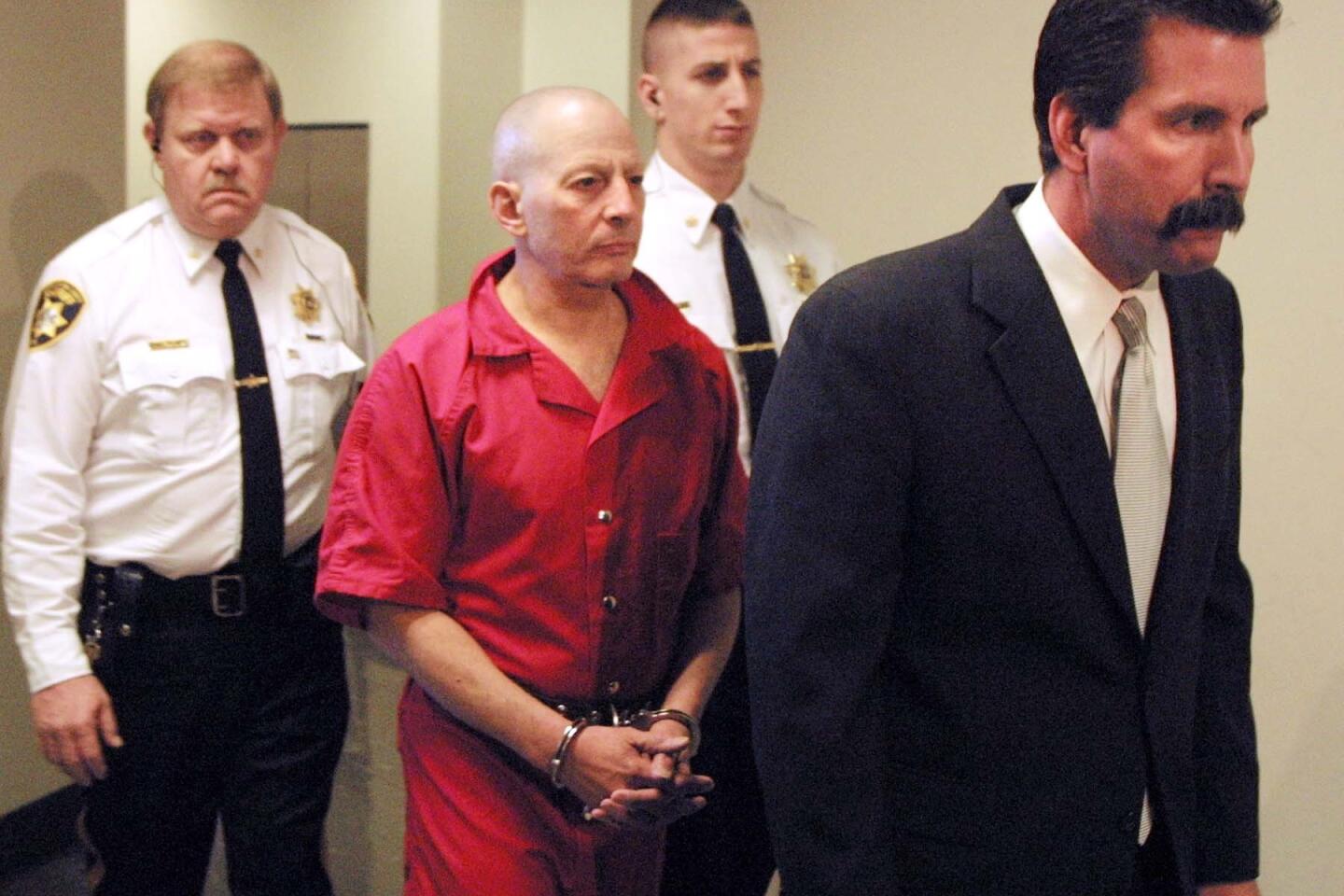Q&A: Durst’s ‘killed them all’ remark on HBO likely admissible in court: experts
- Share via
The bathroom mutterings of Robert Durst, seemingly admitting to killings, would likely be admitted in court if the New York real estate heir were to stand trial on a murder charge in Los Angeles, according to criminal law experts.
Durst was caught off-camera, apparently unaware that he was still being recorded, saying to himself: “What the hell did I do? Killed them all, of course.” His monologue was broadcast Sunday as part of the finale of the HBO documentary series “The Jinx” about Durst and suspicious deaths linked to him.
Robert Durst: Decades of deaths and suspicions
Durst, 71, was arrested on Saturday in New Orleans on suspicion of the 2000 killing of Los Angeles writer Susan Berman. He waived his right to fight his extradition to California, and was expected to be sent to Los Angeles.
------------
FOR THE RECORD
An earlier version of this post misspelled Peter Arenella’s last name as Aranella.
------------
Did the recording violate Durst’s privacy?
Peter Arenella, a UCLA law professor and a nationally recognized expert on criminal law, said Durst and his lawyers would have a hard time arguing he had an expectation of privacy because of the broad release he reportedly signed agreeing that his statements could be used in the film.
“I think it’s very likely it’ll end up before a jury,” said Arenella, who said he’d been following Durst and the documentary series with interest. “Once a jury hears the bathroom comments, if they hear it, that’s the death knell for Mr. Durst.”
Arenella said because it was a private party – the documentary crew – rather than police who recorded Durst, his attorneys would not be able to evoke his 4th Amendment right against unreasonable search and seizures to keep the statement out of court. Defense attorneys could try to argue the documentarians began working with law enforcement and became agents of the government, he said, but added that such an argument would be a long shot.
Will the recording be admissable in court?
Loyola law school professor Stanley Goldman, an expert on criminal procedure and evidence issues, agreed that the recorded comments would most likely be admissible as evidence in court.
“There are prohibitions against government eavesdropping and there are prohibitions against listening in on confidential conversations, all those are neatly established,” he said. “There’s no muttering to yourself in the men’s room exception.”
How much will jury hear?
Goldman said, however, whether the remarks would be played before jurors could be complicated if a judge rules that prosecutors could not present evidence of other suspicious incidents Durst has been linked to. Durst was the focus of an investigation into the 1982 disappearance of his first wife and was acquitted of the killing of a neighbor in Galveston, Texas, in 2003.
Goldman said that if a Los Angeles judge decides that prosecutors cannot introduce evidence about the other cases during a trial over Berman’s killing, attorneys would have to argue over whether the bathroom statement could be introduced because Durst mentions killing “them all.”
How would defense explain it?
If the monologue is played for jurors, Goldman said, attorneys would make every attempt to downplay its significance.
“If I was a defense lawyer, my position would be a) he was joking … of course he knows he’s miked, it’s ironic, or b) he’s just in a daze, he’s so confused, he’s wondering if he might’ve killed them all,” he said.
How would defense explain it?
If the monologue is played for jurors, Goldman said, attorneys would make every attempt to downplay its significance.
“If I was a defense lawyer, my position would be a, he was joking … of course he knows he’s miked, it’s ironic, or b, he’s just in a daze, he’s so confused, he’s wondering if he might’ve killed them all,” he said.
Harvard Law professor Noah Feldman said a judge might conclude that the statement would prejudice jurors against Durst while not necessarily proving his guilt. Feldman said the judge’s decision would come down to the nature of soliloquy and whether a statement made while alone, talking into a bathroom mirror, amounted to an admission.
“It could’ve meant almost anything. When you’re talking to another person you’re communicating something. When you’re talking to yourself, it could be speculation, trying something out for size,” he said. “Whatever it is, it’s not obviously a recitation of facts.
“What he says has to be understood in the light of his situation. … It’s superficially plausible to say, if he said it to himself it must be true, but if you think about what you say to yourself in the mirror in the mornings, is that necessarily true?”
For news on the courts, follow @vicjkim
More to Read
Sign up for Essential California
The most important California stories and recommendations in your inbox every morning.
You may occasionally receive promotional content from the Los Angeles Times.
